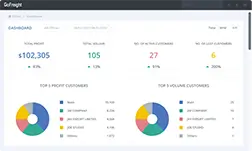What is a Dry Run?
A dry run in the freight industry refers to a specific scenario where transportation of goods is simulated without the actual cargo. This process is often used to test the efficiency and feasibility of a logistics plan. It’s a crucial step in ensuring that all aspects of the transportation process, from routing to timing, are well-planned and feasible. Dry runs help in identifying potential issues before the actual shipment, ensuring a smoother operation when it comes time to transport real cargo.
Why Do Dry Runs Happen?
Dry runs are conducted for several reasons in the freight and logistics industry:
- Testing New Routes: When a new route is proposed, a dry run allows logistics managers to evaluate its efficiency and safety.
- Training Personnel: Dry runs serve as a practical training exercise for staff, especially drivers and logistics coordinators, to familiarize themselves with new processes or routes.
- Evaluating Timeframes: It’s important to ensure that the estimated timeframes for transportation are accurate. A dry run helps in confirming these estimates.
- Risk Assessment: Conducting a dry run aids in identifying potential risks and challenges that might arise during the actual shipment.

